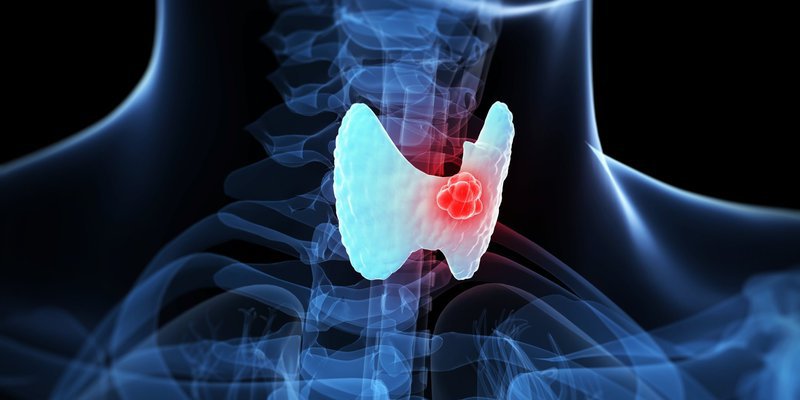Thyroid cancer is a condition that predominantly affects women, and its prevalence is on the rise. While terms like "malignant" and "cancer" can be frightening, it's crucial to understand that thyroid cancer is often highly treatable. Most thyroid cancer is highly treatable, even when the cancer cells spread to nearby lymph nodes. In fact, when diagnosed early, thyroid cancer offers a 98 to 99 percent survival rate at 20 years, making it a slow-moving disease with an excellent prognosis. This blog will provide comprehensive insights into thyroid cancer in women, including its symptoms, detection, and treatment options.
- Understanding Thyroid Cancer: Thyroid cancer primarily occurs in women, possibly due to hormonal differences between genders. While up to 80 percent of women may develop thyroid nodules in their lifetime, only 5 to 15 percent of these nodules turn out to be malignant. These cancers usually spread to lymph nodes in neck and spread to different part of the body later. Recent advancements in diagnostic techniques have contributed to an increase in the detection of thyroid tumors, positioning thyroid cancer as the projected third most common cancer.
- Hoarseness: Persistent hoarseness or changes in your voice quality can indicate that something might be amiss with your thyroid gland, and it's worth seeking medical attention.
- Difficulty Swallowing: Dysphagia, or difficulty swallowing, can occur when a thyroid tumor presses against the esophagus. This symptom should not be ignored and warrants a thorough medical evaluation.
- Difficulty Breathing: can occur when a thyroid cancer compresses or invades the trachea (wind pipe) or paralyses vocal cords.
Noticeable Lump in the Neck: Perhaps the most widely recognized sign of thyroid cancer is the presence of a palpable lump or nodule in the neck. While not all neck lumps are cancerous, any lump should be evaluated by a healthcare professional. Many times, these tumors are detected while scanning the neck for some other reason.
If you experience any of these symptoms, seeking prompt medical advice is essential.
Understanding Different Stages of Thyroid Cancer: Upto 80% of all thyroid cancers are papillary cancer and has the best outcome and most favourable prognosis. It tends to respond well to treatment. Follicular thyroid cancer (upto 15%) or medullary thyroid cancer (about 2%) has a good prognosis, but less favourable than papillary thyroid cancer. Anaplastic thyroid cancer has a very poor prognosis.
Thyroid cancer is classified into various stages, each with distinct characteristics and implications for treatment:
Stage I: At this early stage, the cancer is confined to the thyroid gland, posing relatively lower risks.
Stage II: The cancer progresses to involve nearby lymph nodes, indicating some extent of local spread.
Stage III: It advances further, affecting the surrounding tissues within the neck.
Stage IV: In its most advanced form, thyroid cancer metastasizes, spreading to distant organs and systems in the body.
Understanding the stage of thyroid cancer is pivotal as it guides healthcare professionals in determining the most appropriate treatment plan. Early detection of thyroid cancer, often linked to favourable outcomes, underscores the importance of regular health check-ups and thyroid screenings.
Treatment Options: Remarkably, advancements in medical science have opened up a spectrum of treatment options for thyroid cancer. These options encompass a range of approaches, each tailored to specific circumstances and individual patient needs:
Surgery: Surgery to remove the entire thyroid gland (Total thyroidectomy) and any affected lymph nodes is the preferred treatment. The extent of surgery depends on the size and stage of the cancer. Meticulous surgical technique coupled with neurophysiological monitoring of the nerve helps to preserve normal voice after surgery
Radioactive Iodine Therapy: Radioactive iodine therapy is often used after surgery to target and destroy any remaining thyroid tissue or cancer cells.
Thyroid Hormone Replacement Therapy: Following thyroid surgery or radioactive iodine treatment, patients often require lifelong hormone replacement therapy to maintain proper thyroid function.
Targeted Therapies: Therapies: In cases of advanced thyroid cancer or those resistant to traditional treatments, targeted therapies may be employed to inhibit specific molecular pathways involved in cancer growth.
Conclusion: Thyroid cancer, though a complex condition, is manageable, especially when detected early. It is essential for women to be aware of their unique risk factors, symptoms, and the importance of regular check-ups and screenings. Early detection, coupled with appropriate treatment, can significantly enhance the chances of recovery and improved quality of life.
If you have concerns about your thyroid health, please don't hesitate to consult a healthcare professional. Your health is paramount, and proactive management can make a substantial difference.

Dr. C. Rayappa, FRCS Senior Consultant – Head & Neck Oncology and Skull Base Surgery Apollo Cancer Centre, Chennai.





.png)



